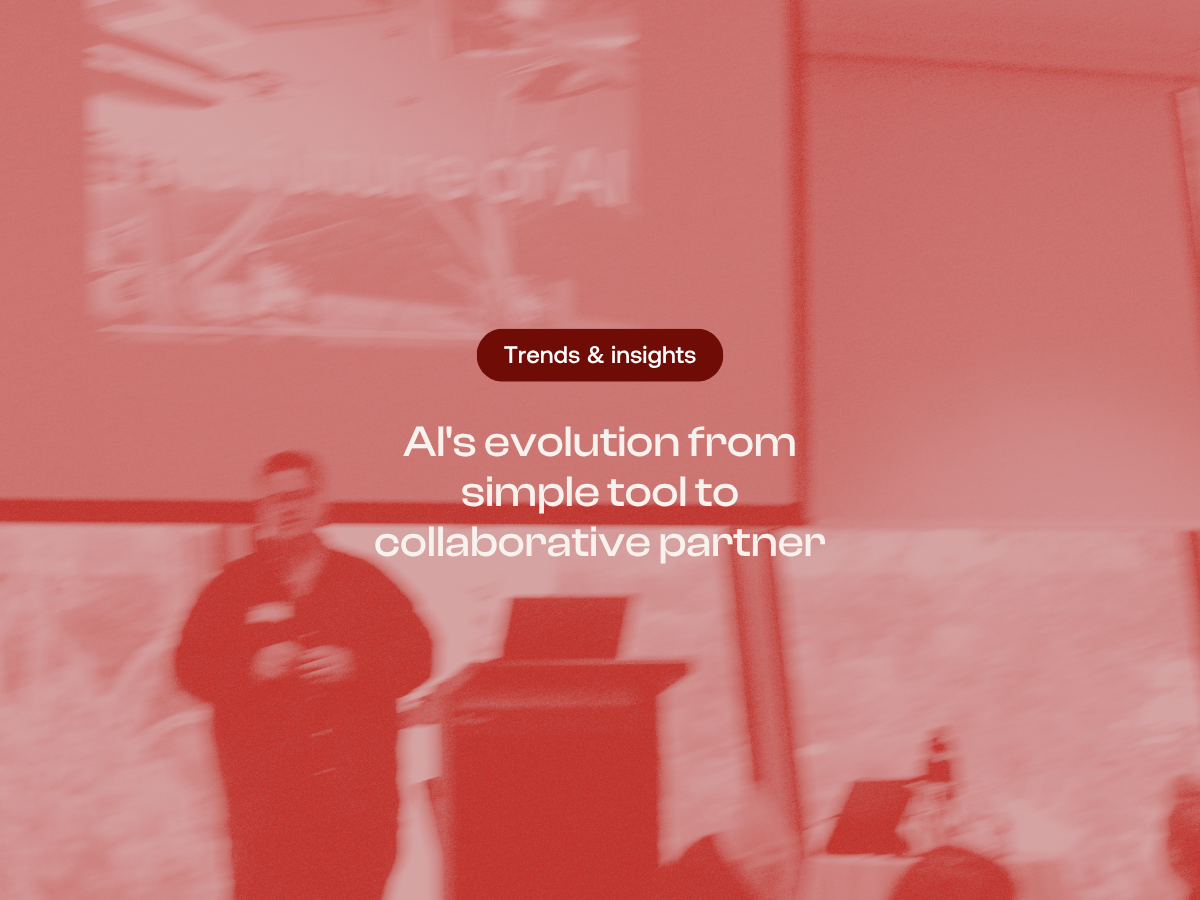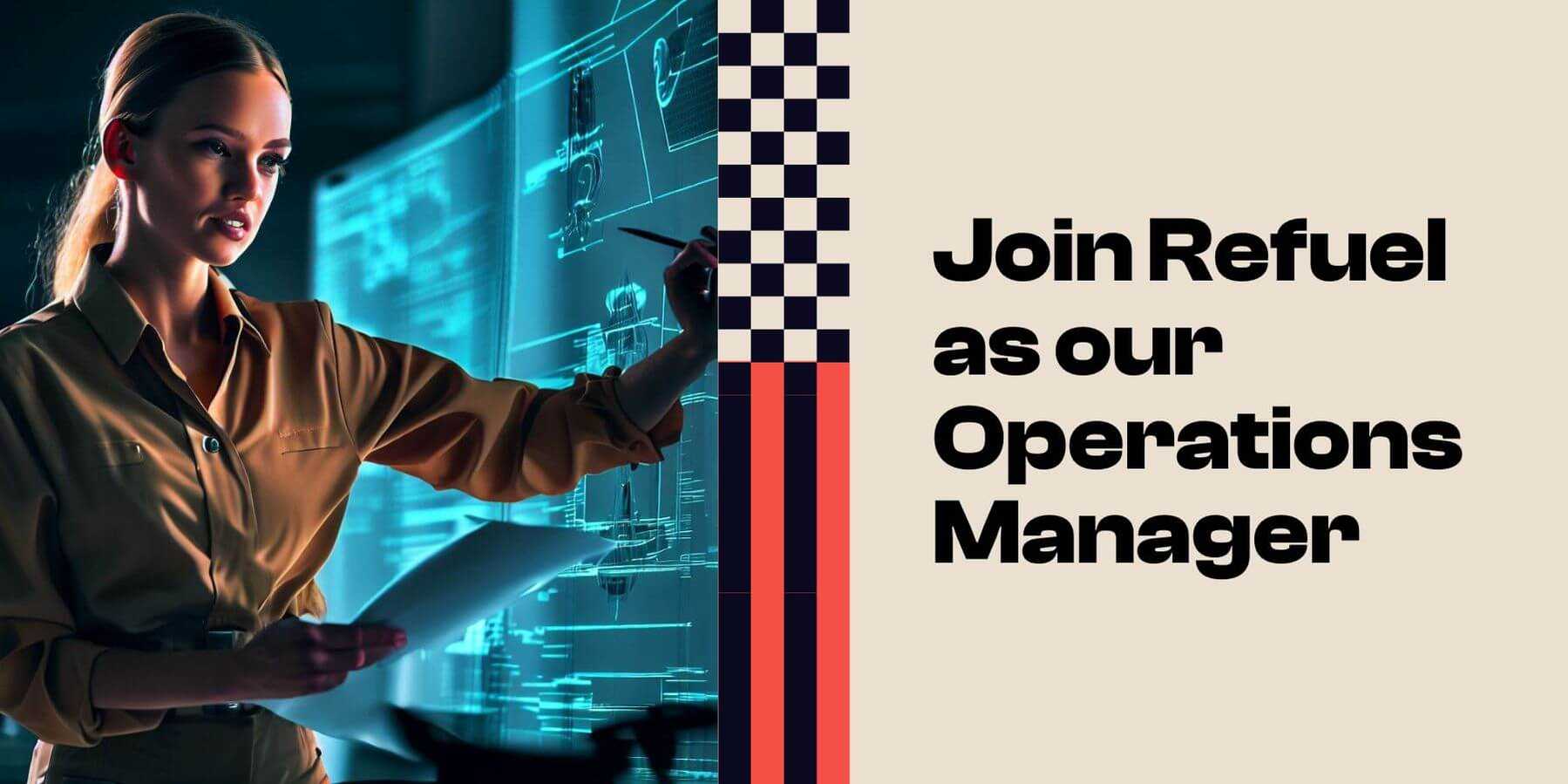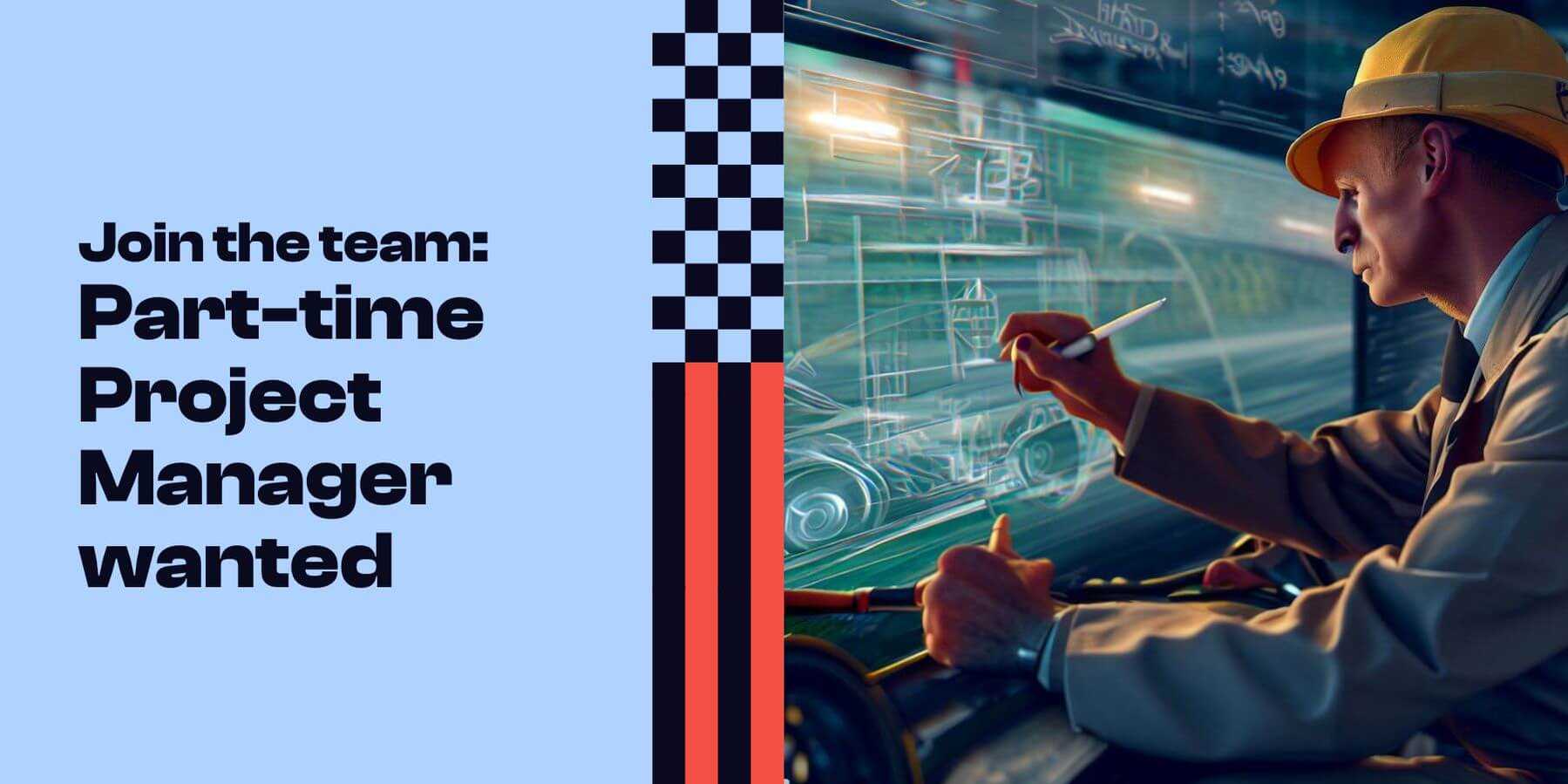The future of AI: what's coming next?

Last updated: 18 August 2025
Predicting the future of artificial intelligence can feel pointless. This is because AI tools and systems are changing so quickly. By looking at our past and what is happening now, we can understand where this amazing technology is going.
I recently spoke at AI Day in Adelaide about this topic. I want to share my thoughts on what I think is coming in the short, medium, and long term. From enhanced AI capabilities to (spoiler alert) marriage, here's what I see on the horizon for AI in 2025 and beyond.
Short-term AI developments
It is crazy to think how far AI has come in the last few months, so we can imagine where it will be in the next 6. Over the next 6-18 months, we’ll see AI transform from a tool into a helpful sidekick.
We're witnessing significantly enhanced capabilities from platforms such as Claude and ChatGPT. New tools from Canva, Gemini, and Dropbox are also coming out. AI assistants are now able to predict our needs instead of just answering commands and models are continuing to get better.
1. Enhanced general capabilities: AI is getting dramatically better
The most obvious trend we're already seeing is that every new AI model that comes out is better. They consistently demonstrate improved capabilities in language recognition and handwriting recognition. The contextual understanding of responses and the accuracy and reliability of those responses are evolving too.
Overall, the newer models are significantly better. Just take a look back at the image generator for ChatGPT to see how far it’s come in such a short space of time. ChatGPT can now work with spreadsheets. The new Claude model has a research function that is much better than others.
The good news is that the models will continue to improve. Regularly test new AI models in your business and make adjustments as needed.
2. Seamless integration with your information
One of the biggest barriers to AI adoption I have seen is using it seamlessly with your own data. If you use AI to simplify your life or improve your business, you need AI trained on your data. This way, it will understand how you work.
We're starting to see tools like Gemini, Dropbox and Notion launching their own tools to help you do this.
Claude's Projects functionality has been excellent for this. In my experience ChatGPT has been less effective, but like anything, make sure you test it out and see what works best for you.
One thing I’m loving at the moment is Google has added Gemini chat into Google Ads. It’s a game changer. This means you can ask Gemini to review ads, review the account data and give you suggestions on what to do next.
HubSpot now has an integration that lets ChatGPT deep dive into your CRM data. The integration is officially called the deep research connector and gives ChatGPT secure, read-only access to your HubSpot data.
What would normally take you hours to review, you can do in a matter of minutes. When you consider how long it usually takes to review, analyse and report on data manually, this kind of AI is a game-changer and time saver.
In the short term, we’re going to have more integration with our own information. The risk is that you’re uploading your own information and data into these systems. Just make sure that what you upload is okay to be used for AI training. Also, bear in mind that it will be stored in data centres overseas. If this is a problem, use a model that lets you control data for training. Or check out HubSpot and their AI tools as they have recently announced dedicated Australian data centres.
3. The rise of AI assistants and agents
“AI agents” is probably the buzzword for 2025. Both Salesforce and HubSpot have rolled out beta versions of their AI agents that we’ll be able to program to do “missions”. This will be great particularly for those tasks that many of us don’t like to do or ones that just take up a lot of time.
The goal is not to replace marketers. Instead, we want to remove the grunt work. This way, we can focus on strategy and creativity.
4. AI evolving from tool to co-worker
AI continues to move from being just a simple tool that we interact with to being a true co-worker.
This means AI systems that proactively make suggestions rather than doing what you tell it to do when you tell it to do it. AI will work ahead of you and give you the data before you’ve asked for it.
Medium-term AI developments
The next 2-5 years will see big changes in how AI operates and integrates into society. We will see governments working to build their own AI systems. AI will shift from the cloud to devices. Platforms will create applications as needed.
It will also be the time that we see a demand for AI to be more ethical and transparent as we develop a deeper emotional connection with AI systems.
1. AI data sovereignty becomes critical
One of the bigger issues we will see emerging in the next couple of years is around AI data sovereignty. Nations are going to start looking at their own sovereign capability for AI.
The Australian Government allows some use of Microsoft Copilot. This is only if data is kept in Australian Azure data centres. However, we do not have mainstream, home grown algorithms and models yet.
In the past, Australia hasn’t seen the need or benefit in investing or inventing our own models. Now, we see what others are doing. China with Deepseek really caused a stir. America owns most AI capability. We realise how powerful it is and the downside of not having our own. In the near future, we will.
2. Local device AI
Most AI on our devices, even the old faithful Siri, cannot be used when you are offline. This is because they don’t run on the device, they phone home to their servers to give you an answer. This also adds a delay to the response. There aren’t any mainstream AI models that can operate on your local device.
The DeepSeek and Llama-2 models can run on your device with some adjustments. However, they are not as powerful as their online versions. Your laptop simply doesn’t have the same power as a cluster of data centre servers.
It’s probably still at least five years away before we see simple models popping up on our devices. We’re starting to see chip manufacturers build chips that have the additional AI specific processing power and GPUs, and this will continue to grow.
We will end up with AI that doesn’t need your phone to be online all the time to work. That will also help us with our data sovereignty because if the data doesn’t need to leave the device, then we’re more protected.
3. Generative AI platforms developing single-use tools
We are already seeing some trends towards the creation of single-use applications. The concept is you need a tool to do a job, you can create one specifically for that job using AI, use it once and it’s gone.
I was in LA in April for Canva Create, where they announced that they’ve partnered with Anthropic to put Claude-based coding into Canva. You can now go into Canva and say, “I need a calculator that calculates compound interest over x years with y outputs and z inputs” and it will make it for you in 2 minutes.
You might use that once, but when you’ve got it, you’ve got it. We will see more platforms come on board to enable us to create very specific and niche apps and tools. This will allow us to automate and streamline a lot more functions with AI.
4. "Vibe coding" changes how we build technology
There's a growing trend that Open AI has labelled "vibe coding". This is a form of software development that leverages artificial intelligence to generate and enhance code through the use of language prompts. This gives the sense that with AI anyone can code. But the person issuing the instructions doesn’t understand the code, just the vibe of it, hence the name.
It makes software and app development quicker and easier, but for more complex projects, you'll still need technical skills. Developers won’t be going anywhere anytime soon, but the ability to build simple apps using AI with no technical skills will improve.
5. Advanced AI integration across platforms
The integration we're seeing now is just the beginning. Claude is a favourite of mine as it already integrates with Gmail, Google Calendar, and Google Drive. This allows me to ask questions that interrogate my data.
For example, I can say, "Can you summarise all my emails with [client] from the last six months?" I can also ask, "Can you look at my meeting patterns and suggest how to reduce my meeting load?"
We will see this more with AI assistants, but they're probably not quite there at the moment.
6. AI in virtual and augmented reality
Meta's AI glasses are already demonstrating the use of AI in the augmented reality space. You can walk through a foreign city and have everything you look at automatically translated. You can even have real-time conversations with people who speak different languages, with the AI automatically translating for you.
7. Societal shift towards human values
We’re going to see a societal shift towards making sure AI systems fit in with our values. There is a shift now for AI to be more environmentally conscious when it comes to data centres. But there will also be a shift in wanting AI responses to be more human, transparent, and accountable.
As more and more of us use AI in our daily lives, something interesting is happening. People are already getting tired of obviously AI-generated content. ChatGPT's writing style, particularly in the free version, is easily recognisable due to the frequent use of em dashes in every paragraph.
On the flip side, I’ve had entire conversations with people where I know every response is from ChatGPT. Individuals are turning to ChatGPT as a substitute for therapy. People are bonding with AI and speaking to it as though it is human.
Eventually, the same values we uphold and expect from people, we will expect from our AI systems. And you just know someday in the future someone is going to marry a bot!
Long-term AI developments
The next 5 to 15 years will bring about a reimagining of human-computer interaction. We’re moving toward AI that doesn’t just execute tasks but genuinely collaborates with us. One that questions assumptions, contributes to original insights, and predicts what we need before we do.
At the same time, brain-computer interfaces will blur the line between human and artificial intelligence. We will see AI become more human-like in its empathy and reasoning.
Businesses that succeed now will balance AI skills with human values. They will make sure technology supports people instead of replacing them.
1. True collaborative AI
We're moving toward AI that genuinely collaborates rather than just following instructions. AI systems will move beyond simple task automation and into genuine cognitive assistance.
This means AI that can work with you on more intellectual tasks. Sometimes, it already seems like it's thinking and figuring things out. In the future, there will be no doubt that AI is a true partner in problem-solving. We will start asking AI questions and use a collaborative approach in our prompts, as we do with humans.
There will be an increase in public demand for AI systems to prioritise human values, empathy, emotional intelligence, and ethical behaviour. We will actually demand AI become more human!
2. Semi-autonomous AI governance
As AI gets better at finding and analysing data, we will see new AI-driven governance systems. These systems will manage big issues like global warming, public health, and infrastructure on their own. While they won’t replace human decision-making, they will provide unprecedented analytical capabilities.
AI governance systems could analyse real-time data from thousands of sources simultaneously to identify patterns and solutions that would be impossible for human teams to spot. We’re probably 10 years away from seeing meaningful implementation but the potential for AI to help coordinate responders to complex global challenges is enormous. The key here will be ensuring these systems remain accountable to human insights and democratic values.
3. Brain-computer interfaces enter mainstream
Neuralink is already putting a device in your brain as an assistive technology. This type of technology really could change the human race and potentially one day even eliminate certain disabilities. Being able to give people with particular disabilities the ability to get mobility back or be able to control things with a device that’s in their brain is incredible. This will be the power of AI in the long-term future.
How to prepare for an AI-powered future
The future of AI isn't just about technology. It's about how we choose to integrate these powerful tools into our businesses and society. The organisations that thrive will be those that use AI to amplify human creativity and capability, not replace it.
At Refuel Creative, we assist businesses in successfully navigating the ongoing AI transformation every day. From implementing AI-powered marketing automation to developing AI strategies that align with business goals, we're seeing firsthand how AI can drive real results when implemented thoughtfully.
The future of AI is incredibly exciting, and it's arriving faster than most people realise. The real question is not if AI will change your industry, but if you'll lead that change or fall behind.
Want to explore how AI can transform your marketing efforts? Contact us to discuss your AI strategy.


.webp)



